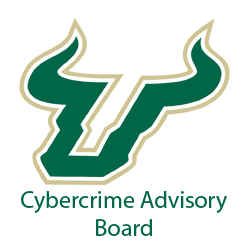
Cybersecurity and Search Engine Optimization
Knowing these two topics can help you to understand the importance of search engine optimization (SEO), and how it relates to cybersecurity. SEO is a way to get your website to rank higher in search engine results, which can bring in more traffic and more business. If a hacker gets into your site and changes the content or titles of pages, they can manipulate search engine results. This is known as “black hat SEO” because it violates Google’s terms of service.
The information below will help you understand how SEO works, how cybercriminals use it for nefarious purposes, and what steps you can take to protect yourself from such attacks.
Black Hat SEO
is a form of search engine optimization that violates the rules set forth by Google. It’s used by cybercriminals to trick people into clicking on malicious links in search results, which can lead them to websites hosting malware or other types of viruses. The most popular black hat SEO techniques include:
- Keyword stuffing: This is when you insert your desired keywords into as many places as possible on a page, such as in titles and headers.
- Link spamming: This involves posting links from websites with high domain authority (DA) to low-quality websites with little or no DA, to boost their ranking.
- Hidden text: This is when you place keywords in the background that are not visible on the page and can only be seen by viewing the HTML source code for a website.
- Malware/Phishing: This is when a website owner creates an SEO-friendly page with links to malware or phishing websites. The goal is to get visitors to click on these links so they can infect their computers with viruses, steal passwords and other personal information, etc.
- SEO poisoning: This happens when your website gets hacked and someone injects certain keywords into it in order to boost their own rankings.
All of the above are considered unethical and can result in a penalty from search engines. White hat SEO is the opposite of black hat SEO because it focuses on creating content that’s relevant to your audience and provides value, not spamming keywords or links. It also means following Google’s guidelines for website optimization so you don’t get penalized by Panda or Penguin updates.
How to Improve Your Website and Protect Your SEO Optimization
In order to protect the integrity of your website’s SEO optimization, you need to ensure that it’s secure. This is done by making sure your site is free from malware, viruses, and other malicious content that could potentially harm its ranking. You also want to make sure that any external links are pointing back to your website so that Google doesn’t penalize you for using spammy techniques.
This is where website security and SEO optimization intersect. You need to keep your website up-to-date with the latest security protocols in order to protect it from hackers who are looking for vulnerabilities. This includes things like making sure that all of your plugins and software are up-to-date and using a strong password manager whenever possible.
Otherwise, getting deeper into the technical side of SEO optimization can be a good way to optimize your website for Google’s algorithms. This includes things like making sure that you have enough content on your website, using keywords correctly and strategically, and making sure that any external links are pointing back to your site. We at Arruda Group can provide some more specific guidance on this, but it’s important to remember that the more technical aspects of SEO optimization can be a bit complicated. It’s often best to leave those details up to an expert who knows what they’re doing.



